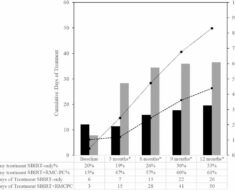Attention to simple dietary changes can lead to weight loss without counting calories, according to a new study from obesity and nutrition researchers at UMass Medical School. In the study, researchers examined feasibility and acceptability among obese adults of a nonrestrictive diet focused on increasing dietary fiber and lean protein for weight loss. Published online by the journal Nutrition on April 25, the study found that increasing lean protein and fiber intake was well-tolerated by patients, improved their overall nutritional profiles and even led to modest weight loss without paying attention to limiting how much food they ate.
“We are encouraged that weight loss did occur without the need for caloric awareness,” said senior author Yunsheng Ma, MD, Ph.D., associate professor of medicine. “In addition, dietary quality score as measured by the Alternative Healthy Eating Index increased. Higher scores are associated with decreased risk of cardiovascular disease, stroke and death from all causes.”
Fifteen obese adults enrolled in the 12-week study, which included six bi-weekly individual dietary counseling sessions to attain a daily goal of higher fiber (35 grams per day) and lean protein (0.8 grams per kilogram of an individual’s ideal body weight per day). Dietary intake was assessed using three randomly selected 24-hour dietary recalls. Feasibility was determined by study retention, attendance at the counseling sessions and adherence to the diet.
Ninety-three percent of the participants approved of the diet, and 92 percent reported that they didn’t feel hungry at all. One participant dropped from the study before the 12-week assessment visit. At the same time that participants increased their total protein, the emphasis on lean protein led to a decreased saturated fat intake.
“Simpler nonrestrictive approaches to diet may be conducive to stronger adherence,” said study co-author Barbara Olendzki, RD, MPH, associate professor of medicine in the Division of Preventive and Behavioral Medicine and director of the UMMS Center for Applied Nutrition. “We chose increased dietary fiber and lean protein because they exert cardiovascular health benefits in addition to weight loss. While many diets can result in short term weight loss, a sustainable, high quality diet will contribute to long-term health benefits.”
Source: Read Full Article





